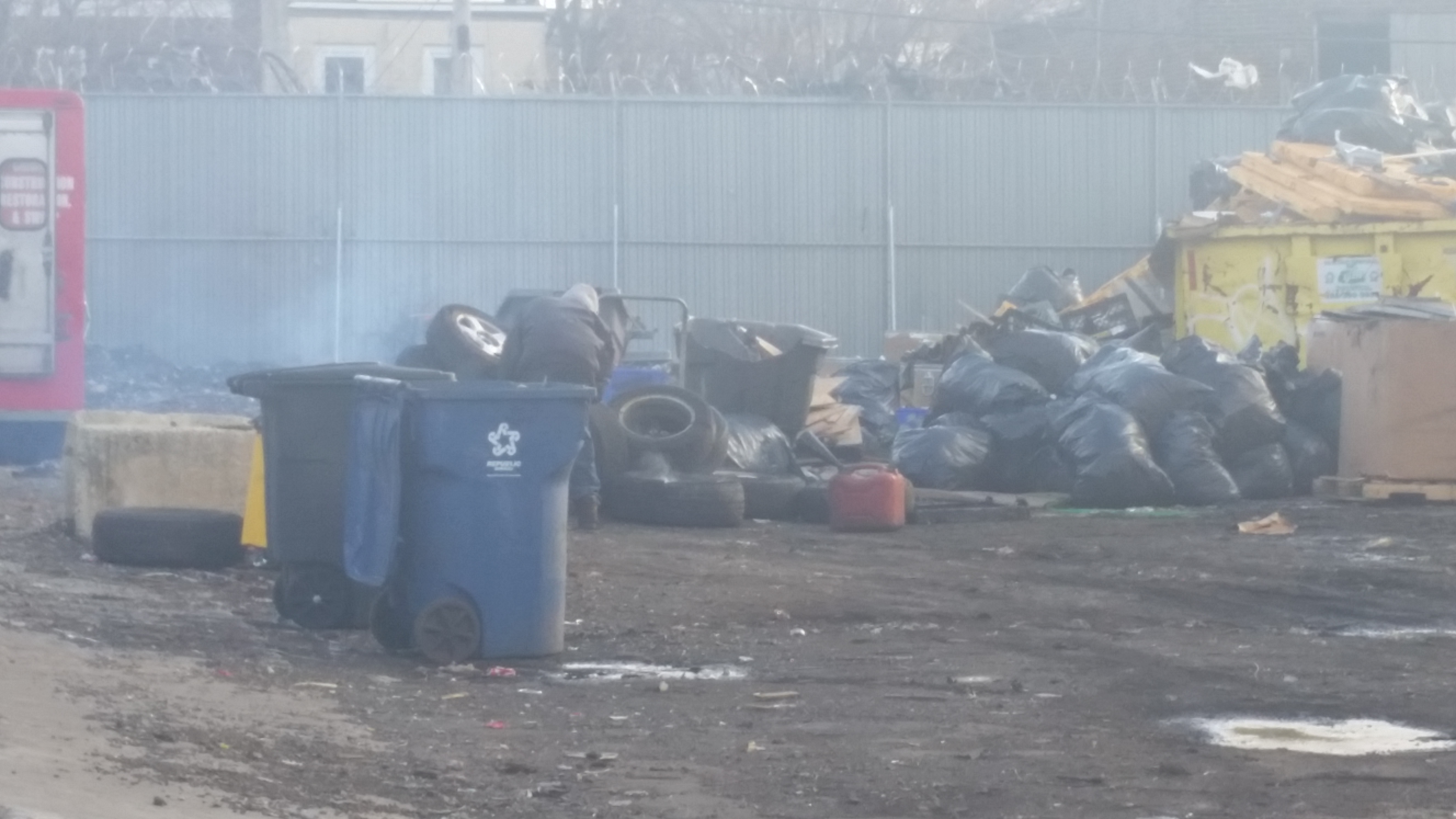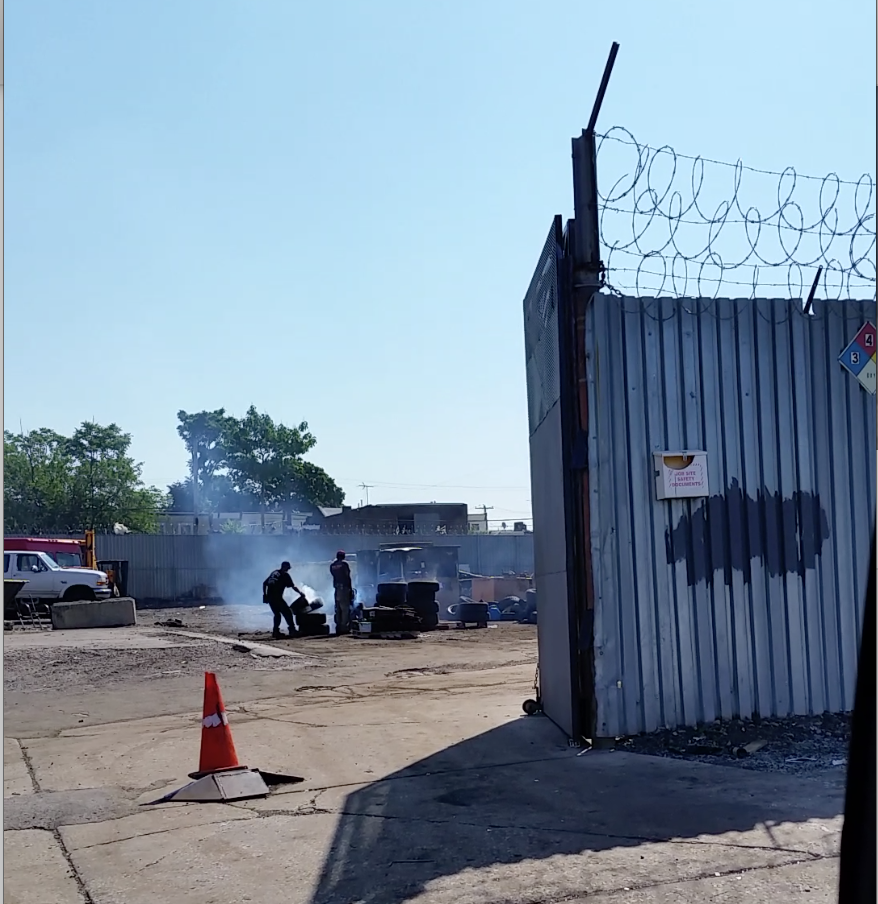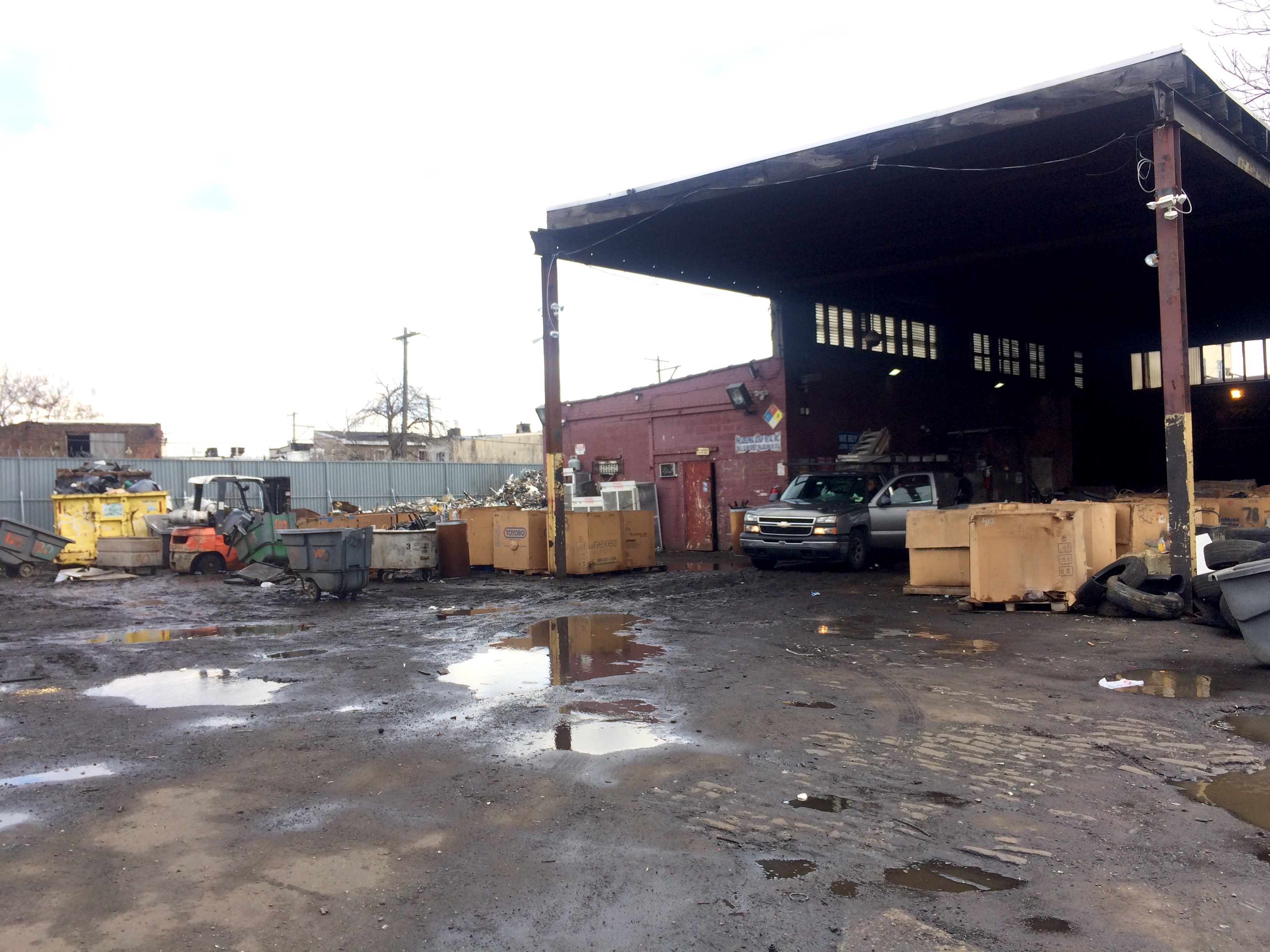Air Management argues against proposed regulation to curb pollution from tire cutting

Kensington resident Genevieve Geer encountered an unexpected opponent in her fight to breathe clean air on her block: Philadelphia Department of Health’s Air Management Services (AMS).
For four years, she’s been filing complaints with AMS, the city’s Department of Licenses and Inspections, and with Councilman Mark Squilla’s office trying to combat air pollution coming from three scrap yards in her neighborhood. Geer’s house is one of 25 rowhouses that are immediately adjacent to Philadelphia Scrap Metal, and when the business cuts tires to recycle metal, the process releases large quantities of smoke from the tires.
“While the air you are breathing today is probably fresh and springy,” Geer wrote in an email to Squilla in April, “the neighborhood here at Frankford and Somerset is thick with the smell of burning rubber from the scrap yard on Silver Street. If we open our windows, our houses fill with the smell, which is equal parts disgusting and toxic.”
After several emails, and after finding out that there was no law preventing businesses from cutting tires, Squilla introduced a bill prohibiting the cutting of rubber tires in an open space. But at the bill’s hearing, Philadelphia’s Air Management director said there was no need for the new regulation.
“It is the understanding of AMS that the intent of the bill is to prevent smoke, odors and other air emissions from such activities from negatively impacting the public or the environment,” Kassahun Sellassie said. “However, AMS believes that these goals are already addressed by the existing Title 3, known as the Air Management Code.”
Although the code says that “no person shall discharge, or allow the escape of air contaminants to the atmosphere,” Somerset neighbors argue they have called AMS to complaint about potential violations numerous times but have so far seen no results. The area is going through a zoning remapping that could change the zoning from Medium Industrial to Industrial Commercial Mixed-used that would not allow new scrap yards in the future.
“How do you reconcile the issue that you have residents that are still dealing with smoke and noise in their community, and your response to this legislation is that we have existing regulations to address that, but nothing has changed?” Councilman Derek Green asked Sellassie.
Sellassie argued the problem is isolated to this scrap yard because it is using a saw. He said by using newer technologies tires could be dismembered without releasing smoke and odors, and that the best solution would be to tell the business owner to change its methods.
“What are you doing to use existing legislation and regulations to stop air pollution, and make them stop using old technology?” Green asked.
Sellassie said Air Management could visit the facility with Councilman Squilla, tell the owners to do change practices, and it could install a video camera.
“You’re saying we can, we will… those are in the future,” Green pressed. “What have you done in the past, considering this is not a new issue?”
Sellassie said AMS had inspected Philadelphia Scrap Metal 19 times “in the last few years,” but no violations were detected, and therefore, no violations or fines were issued. Department of Health’s spokesman James Garrow said in an email that an inspector visited the site on June 1st “but did not observe tire sawing, cutting or burning or any violation of any type.” The next day, Garrow added, AMS staked out the site for two hours starting at 8:30 am, and again found no violations.
Geer, who has lived in the neighborhood for five years, has videos where you can hear the saw and see the smoke coming out of the facility. She told the council committee on public health that the scrap yard usually uses the saw in the mornings for one to three hours, and that when she calls Air Management it usually takes them a whole day to get there.
“They get there so late, and they really don’t seem to take it seriously… I hardly can understand the reasoning, it’s an air management department, I don’t understand the resistance to managing the air at all,” Geer said.
Health Department’s Garrow said AMS worries the bill could have a negative impact for tire recycling businesses and their workers. “It is good to have appropriate reuse and recycling of tires. Even the storage of tires can present certain health hazards… caused by mosquitoes infesting stored tires, or accidental fires to name a few,” Garrow said over email.
Russell Zerbo, an advocacy coordinator with the Clean Air Council who has worked intensely on environmental health risks in the Kensington area, said the bill was needed. AMS, he said, is “underfunded and ill-equipped to respond to immediate, site-specific complaints.” Until recently AMS only had two inspectors to enforce air and noise pollution in the entire city, now there are four.
According to a 2013 Drexel study, particulate matter concentrations in air around the scrap yards are unhealthy or very unhealthy on the Air Quality Index scale. The River Wards have the poorest health indicators for child asthma hospitalizations according to a Community Health Assessment published by the Health Department in 2014.
At the end of the hearing Sellassie told Councilman Squilla he has seen the smoke on Geer’s video. “I saw it, it is clear, white, that means it’s fine,” Sellassie said. Regulations limit visible emissions according to their opacity, not color.
“Regardless of color, no facility without an air permit is legally allowed to emit air pollution beyond their fence line,” Zerbo said.
“I am absolutely shocked that Air Management showed up to speak out against a bill that would provide Philadelphians with cleaner air,” Geer said. “If there is a new technology then it wouldn’t matter to them if this bill passes or not.”
Councilman Green said he was also surprised by AMS responses. “It was interesting,” he said. “I also don’t think it only happens in one facility in Philadelphia.”
City Council is scheduled to vote on the bill this Thursday.
WHYY is your source for fact-based, in-depth journalism and information. As a nonprofit organization, we rely on financial support from readers like you. Please give today.






